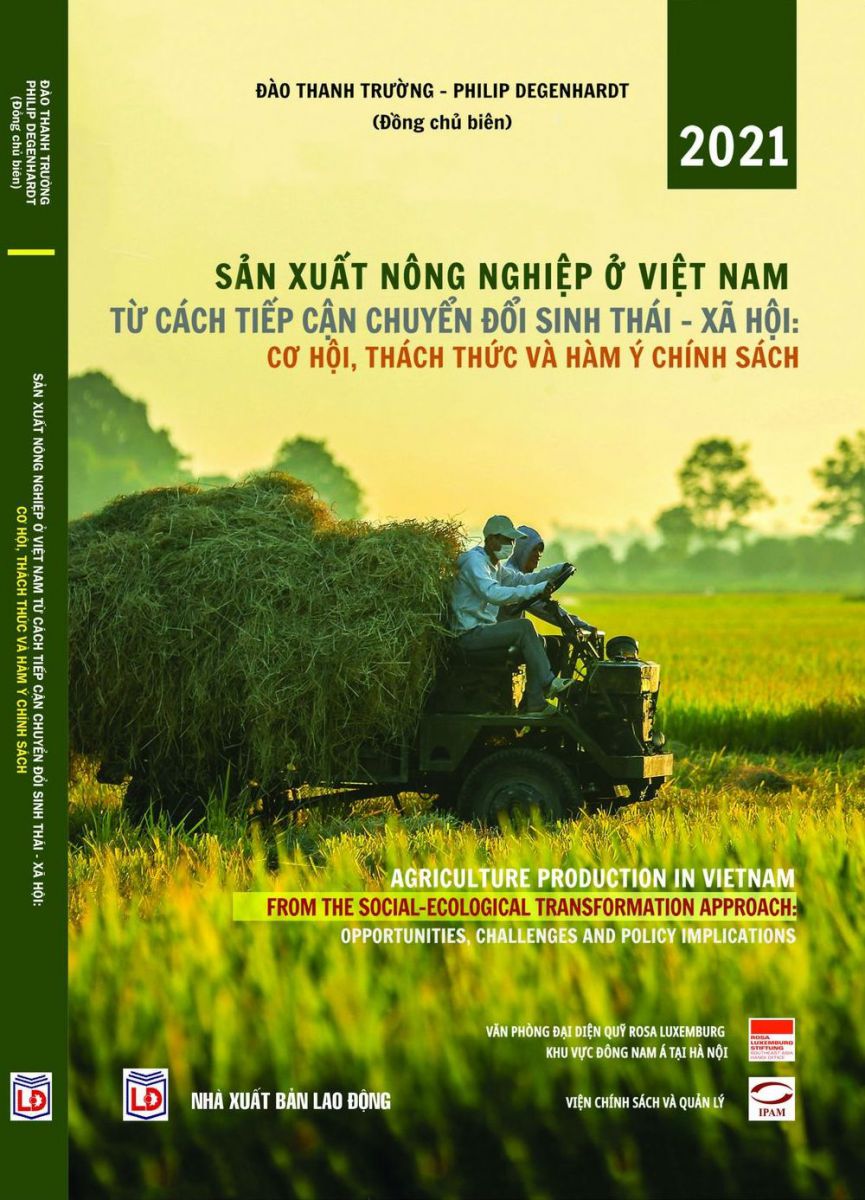book titled "Agricultural production in Vietnam from the approach of socio-ecological transformation": Opportunities, challenges and policy implications”

Climate change and the Covid-19 pandemic have had a dual impact on agricultural production, the food system, and the achievement of global sustainable development goals.As a country that thrives on agriculture, Vietnam is not anexception to the challenges of responding to natural disasters and epidemics, at the same timechoosing a development path for agriculture that ensure both national-cultural distinction and highly adaptive to rapid social changes ona global scale.
Since 2018, within the framework of the cooperation projects the Rosa Luxemburg StiftungSoutheast Asia – Representative Office in Hanoi(RLS SEA), the Institute of Policy and Management (IPAM) has developedan idea on a series of projects based on the first socio-ecological approach in Vietnamand achieved remarkable results. The paradigm shift from sustainable development to socio-ecological transformation is a starting point that we believe can provide solutions to agricultural development challenges and overcome the limitations of input-intensive agricultural systems,especially in the context of adapting to climate change and the Covid-19 crisis.
From the initial results, theboard ofproject coordinatorshas proposedand funded by RLSto publish a book titled "Agricultural production in Vietnam from the approach of socio-ecological transformation": Opportunities, challenges and policy implications”. The book consists of 20 articles that are research resultsandlatest ideas of experts and scientists on the solutions and roadmap to overcome the challenges of the Covid-19 situation and climate change. The publication is expected to offer new approaches and frameworks for agricultural development and food systems in order to ensure socio-ecological balance.
The book consists of two chapters:
Chapter 1: Socio-ecological transformation approach
Chapter 1 is a collection of articles that examinetheoretical issues, approaches, and terminology regarding socio-ecological transformation (SET) of agricultural production and food systems, as well as nutrition systems. The authorsanalyzes nature-based solutions for agricultural production transformation in the context of global transformation. The solutions also concerninstitutional issues to promote sustainable development in Vietnam and the conditions for Vietnam to transition to a sustainable agro-food system, which model is an alternative to net sole GDP growth-based economy.
Chapter 2: Ensuringand developing food system and agricultural system in the context of socio-ecological transformation in Vietnam
Climate change and the Covid-19 epidemic have had a significant impact on food security and food sovereignty in many nations in general, and Vietnam in particular. Chapter 2 provides a socio-ecological transformation approach to agricultural production and the development of food system in Vietnam. The articles demontrate practicalresearch results and solutionsto ensure and develop the food and agricultural product system, as well as other related issues such as: developing the supply chain of agricultural products and food;policies on intellectual property protection for agricultural products geographical indication;using fertilizers for crop production towards ecological agriculture and agro-tourism, which aims to transform multi-functional agriculture and tourism. Chapter 2 provides profound and practical explanations on the issue of socio-ecological transformation in agricultural production, as well as policy implications that contribute to the policy-making process.
After more than three years of project implementation, we are delighted to receive positive feedbacksfrom the scientific community and policymakers with annual publications on socio-ecological transformation as a part of thecooeprationproject between IPAMand RLS SEA. We hope that this publication will continue to spread and improve research directions on socio-ecological transformation in agricultural production, as well as promote thenetwork of researchers and regional interdisciplinary scientific forums on economic, ecological, and social transformations in the upcoming time.
With its theoretical and practical value, it is our pleasure to introduce this publication to experts, scholars, managers, policymakers, and all of the readers
 By ipam.edu.vn
Institute of Policy and Management
5 sao trên
550987 khách hàng bình chọn
By ipam.edu.vn
Institute of Policy and Management
5 sao trên
550987 khách hàng bình chọn



.jpg)


